第225章 PART IV(51)
Lebedeff really had been busy for some little while; but, as usual, his plans had become too complex to succeed, through sheer excess of ardour. When he came to the prince--the very day before the wedding--to confess (for he always confessed to the persons against whom he intrigued, especially when the plan failed), he informed our hero that he himself was a born Talleyrand, but for some unknown reason had become simple Lebedeff. He then proceeded to explain his whole game to the prince, interesting the latter exceedingly.
According to Lebedeff's account, he had first tried what he could do with General Epanchin. The latter informed him that he wished well to the unfortunate young man, and would gladly do what he could to "save him," but that he did not think it would be seemly for him to interfere in this matter. Lizabetha Prokofievna would neither hear nor see him. Prince S. and Evgenie Pavlovitch only shrugged their shoulders, and implied that it was no business of theirs. However, Lebedeff had not lost heart, and went off to a clever lawyer,--a worthy and respectable man, whom he knew well.
This old gentleman informed him that the thing was perfectly feasible if he could get hold of competent witnesses as to Muishkin's mental incapacity. Then, with the assistance of a few influential persons, he would soon see the matter arranged.
Lebedeff immediately procured the services of an old doctor, and carried the latter away to Pavlofsk to see the prince, by way of viewing the ground, as it were, and to give him (Lebedeff)counsel as to whether the thing was to be done or not. The visit was not to be official, but merely friendly.
Muishkin remembered the doctor's visit quite well. He remembered that Lebedeff had said that he looked ill, and had better see a doctor; and although the prince scouted the idea, Lebedeff had turned up almost immediately with his old friend, explaining that they had just met at the bedside of Hippolyte, who was very ill, and that the doctor had something to tell the prince about the sick man.
The prince had, of course, at once received him, and had plunged into a conversation about Hippolyte. He had given the doctor an account of Hippolyte's attempted suicide; and had proceeded thereafter to talk of his own malady,--of Switzerland, of Schneider, and so on; and so deeply was the old man interested by the prince's conversation and his description of Schneider's system, that he sat on for two hours.
Muishkin gave him excellent cigars to smoke, and Lebedeff, for his part, regaled him with liqueurs, brought in by Vera, to whom the doctor--a married man and the father of a family--addressed such compliments that she was filled with indignation. They parted friends, and, after leaving the prince, the doctor said to Lebedeff: "If all such people were put under restraint, there would be no one left for keepers." Lebedeff then, in tragic tones, told of the approaching marriage, whereupon the other nodded his head and replied that, after all, marriages like that were not so rare; that he had heard that the lady was very fascinating and of extraordinary beauty, which was enough to explain the infatuation of a wealthy man; that, further, thanks to the liberality of Totski and of Rogojin, she possessed--so he had heard--not only money, but pearls, diamonds, shawls, and furniture, and consequently she could not be considered a bad match. In brief, it seemed to the doctor that the prince's choice, far from being a sign of foolishness, denoted, on the contrary, a shrewd, calculating, and practical mind. Lebedeff had been much struck by this point of view, and he terminated his confession by assuring the prince that he was ready, if need be, to shed his very life's blood for him.
Hippolyte, too, was a source of some distraction to the prince at this time; he would send for him at any and every hour of the day. They lived,--Hippolyte and his mother and the children,--in a small house not far off, and the little ones were happy, if only because they were able to escape from the invalid into the garden. The prince had enough to do in keeping the peace between the irritable Hippolyte and his mother, and eventually the former became so malicious and sarcastic on the subject of the approaching wedding, that Muishkin took offence at last, and refused to continue his visits.
A couple of days later, however, Hippolyte's mother came with tears in her eyes, and begged the prince to come back, "or HEwould eat her up bodily." She added that Hippolyte had a great secret to disclose. Of course the prince went. There was no secret, however, unless we reckon certain pantings and agitated glances around (probably all put on) as the invalid begged his visitor to "beware of Rogojin.""He is the sort of man," he continued,. "who won't give up his object, you know; he is not like you and me, prince--he belongs to quite a different order of beings. If he sets his heart on a thing he won't be afraid of anything--" and so on.
Hippolyte was very ill, and looked as though he could not long survive. He was tearful at first, but grew more and more sarcastic and malicious as the interview proceeded.
The prince questioned him in detail as to his hints about Rogojin. He was anxious to seize upon some facts which might confirm Hippolyte's vague warnings; but there were none; only Hippolyte's own private impressions and feelings.
However, the invalid--to his immense satisfaction--ended by seriously alarming the prince.
At first Muishkin had not cared to make any reply to his sundry questions, and only smiled in response to Hippolyte's advice to "run for his life--abroad, if necessary. There are Russian priests everywhere, and one can get married all over the world."But it was Hippolyte's last idea which upset him.